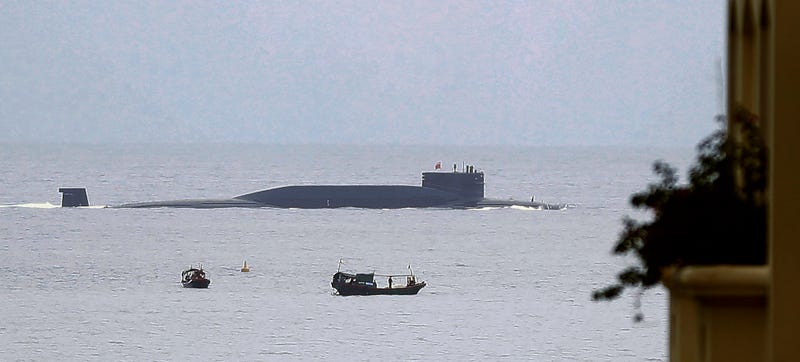By Tom Phillips in Beijing

Gui Minhai, seen on Chinese state television in 2016, has been denied access to a Swedish doctor.
Sweden has accused Beijing of refusing to give a Swedish doctor access to Gui Minhai, the jailed Hong Kong bookseller who was snatched from a Beijing-bound bullet train in January.
“China’s action is unacceptable and breaks previous assurances that our citizen would be given the opportunity to see a Swedish doctor,” the Swedish foreign minister, Margot Wallström, said in a statement.
Sweden has accused Beijing of refusing to give a Swedish doctor access to Gui Minhai, the jailed Hong Kong bookseller who was snatched from a Beijing-bound bullet train in January.
“China’s action is unacceptable and breaks previous assurances that our citizen would be given the opportunity to see a Swedish doctor,” the Swedish foreign minister, Margot Wallström, said in a statement.
“Our work on the case continues unabated. We continue to demand that Mr Gui be given the opportunity to meet Swedish diplomatic and medical staff, and that he be released so that he can be reunited with his daughter and family,” Wallström added.
Gui, 53, was travelling to Beijing with two Swedish diplomats when he was seized by plainclothes agents on 20 January.
It was the latest chapter in a bewildering two-year saga that began in 2015 when the publisher disappeared from his Thai holiday home only to resurface in custody in mainland China, where he remained until he was allowed out of prison last October.
Some had believed the China-born publisher, who became a Swedish citizen in 1992, was on the verge of freedom.
Gui, 53, was travelling to Beijing with two Swedish diplomats when he was seized by plainclothes agents on 20 January.
It was the latest chapter in a bewildering two-year saga that began in 2015 when the publisher disappeared from his Thai holiday home only to resurface in custody in mainland China, where he remained until he was allowed out of prison last October.
Some had believed the China-born publisher, who became a Swedish citizen in 1992, was on the verge of freedom.
However, those hopes have faded since his second detention and fears are now mounting over the state of Gui’s health.
Supporters claim that on the day he was taken, Gui – who may have offended senior Chinese leaders with his gossip-filled books on Communist party politics – had been travelling to the Swedish embassy for a medical examination because of concerns he was suffering from a rare neurological disease.
“He explained to me that he couldn’t really control the movement in his fingers very well … that was obviously quite concerning,” Angela Gui, his daughter, told the Guardian last month.
Chinese authorities have played down those concerns, claiming Gui has been attended to by Chinese doctors.
Supporters claim that on the day he was taken, Gui – who may have offended senior Chinese leaders with his gossip-filled books on Communist party politics – had been travelling to the Swedish embassy for a medical examination because of concerns he was suffering from a rare neurological disease.
“He explained to me that he couldn’t really control the movement in his fingers very well … that was obviously quite concerning,” Angela Gui, his daughter, told the Guardian last month.
Chinese authorities have played down those concerns, claiming Gui has been attended to by Chinese doctors.
Last month dozens of EU politicians wrote to Xi Jinping to demand Gui’s “immediate and unconditional release”.
“Gui is not the first European citizen to be wrongfully detained in China, but we aspire to make him the last one,” the letter said.
“Gui is not the first European citizen to be wrongfully detained in China, but we aspire to make him the last one,” the letter said.





